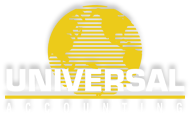
The same thing can happen to your career. You may pick up speed in one direction only to become frustrated when you decide that you’re on the wrong career track with no exit in sight. Don’t panic. It’s still possible to find the right path for you. Consider the following four tips:
- Research. A change should only follow much thought and reflection (and a little internet research couldn’t hurt). It’s important that you take the time to study out the new industry you want to enter. Know what’s required for individuals in that profession— the experience and expertise needed, whether or not you would be able to move up, and where you might find those types of jobs.
- Take Inventory. Regardless of your previous industry, many of your skills and experience are transferable. Take inventory of what you now do and, following the research encouraged above, see how it might apply to the position you would like to get. Remember, a lot relies on how you present your skills and experience. If you know what a job requires you can often communicate your ability to do it by showing how your expertise can be properly applied. In a recent CBS Money Watch article by Margaret Heffernan, she gives four tips in making a successful career change, one of which is to “find some kind of connection” between your previous work experience and the new field you’re looking to enter. This helps prospective employers or clients take a gamble on your new skills while banking on your old ones.
- Network. Look at your contacts to see if there’s anyone with connections to the type of position you’re looking for. Make an effort to meet people in this new field of interest. You can learn more about general job satisfaction and requirements by talking to others. And once you make solid contacts, they can keep you informed of any openings they become aware of.
- Moonlight. Some of the experience that may be required could be obtained after your day job, either in the form of a part-time job or through freelancing work. Not only will this added effort look great on a resume, but it will also show how willing you are to extend yourself in order to break into a new field. That speaks volumes to potential employers of your dedication.
Master Coaching Can Help You Get Back on Track
The Universal Master Coaching Program can help you launch that career you want in the accounting and tax industry. Consider how partnering with a successful financial professional can help you make a smooth transition in your career shift.
Unlike other coaching programs, the Universal Coaches are masters in helping accountants and tax preparers achieve their expectations – they know what works and what doesn’t. This specialization gives them insights that no other coach will have. Not only that, but these seasoned professionals know how to implement the proven marketing strategies that are designed to get you up and running in three to six months.
Achieve true career success with the help of UAC’s Master Coaching Program. Call Universal at 1-877-833-7909 and secure a Master Coach to help advance your accounting and tax career today!
Resource
Heffernan, Margaret. “How to Change Careers.” 28 March 2012 CBSnews.com
